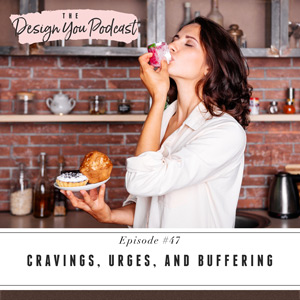
Do you sometimes think about food and go, “Ooh, that sounds good,” and the next thing you know, you’re off your planned healthy dinner and having that food you just thought about instead?
If you’re regularly giving in to your urges and cravings, if you’re stuck in a vicious cycle of these behaviors keeping you from having the life or body or business you really truly want, this episode is for you. While finding yourself here is frustrating, I’ve got some good news for you: We all get in the habit of “buffering” and we often don’t even notice it happening, but it’s something we can unlearn and gain some awareness around.
Tune in to learn how you can address your cycle of urges, cravings, and buffering to get out once and for all to reach your goals for 2019. We all want to escape negative emotions, but I’m going to help you see how doing this has been creating a recipe for disaster in your life over and over again.
If you would like to interact with me and other like-minded people on their journey to optimal health and wellness and who are putting these tools into practice, join us in the Design You Podcast Facebook community!





